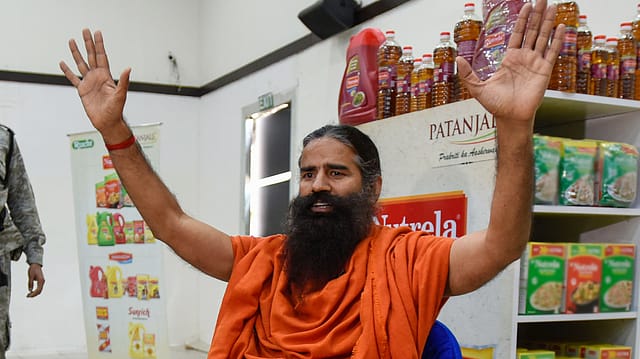Ruchi Soya FPO price band set at ₹615 to ₹650 per share
ADVERTISEMENT

Patanjali Ayurved-owned Ruchi Soya Industries has fixed the price band at ₹615 to ₹650 per share for its follow-on public offering (FPO), a 35% discount compared with Thursday's closing price.
The follow-on public offer of Ruchi Soya will open on March 24 for subscription and will close on March 28.
A follow-on offer is when a firm issues additional shares after an initial public offering.
Through this issue, Baba Ramdev's Patanjali is looking to comply with SEBI's requirement of minimum public shareholding of 25% in a listed business.
The FPO consists of fresh issuance of equity shares of face value of ₹2 each for an amount aggregating to ₹4,300 crore. The issue also includes a reservation of up to 10,000 equity shares for subscription by eligible employees.
Currently, Ruchi Soya promoters hold 98.9% stake in the company. Public shareholders own the rest. After the FPO, Patanjali's shareholding in Ruchi Soya will come down to about 81% and the public would hold about 19%.
Patanjali Ayurved aims to make its companies debt-free in the coming three-four years, with a substantial portion (62%) of Ruchi Soya's proceeds from the ₹4,300 crore follow-on public offer to be used to partly retire the company's debt of ₹3,330 crore.
The Baba Ramdev-led homegrown FMCG giant completed the acquisition of Ruchi Soya in a ₹4,350-crore deal in December 2019. Since then, it has managed to grow the business to ₹16,318 crore in FY21.
Shares of Ruchi Soya tumbled as much as 17% to ₹831 on BSE in the intraday trade on Monday. The stock recovered during the day and was trading 10% lower at ₹900 at 2:50 pm.
The company said it has set March 23 as the bidding date for anchor investors.
This FPO comes at a time when the edible oil sector is facing headwinds due to the ongoing Russia-Ukraine war.
Ukraine and Russia together account for 90% of India's sunflower oil imports. The oil comprises 15% of most edible oil brands.
In an interview with Fortune India last week, Sanjeev Asthana, CEO of Ruchi Soya, said that if the war continues till April, the sunflower sowing season could get impacted, and that could lead to scarcity for a longer period. "So, the pressure would be on to soya oil, which has two dimensions. Both in Brazil and Argentina, from where we import soybean, the crop looks sluggish. To add to that is the mandate on biodiesel and how much of soya oil needs to be used there. There is rapid work happening in Argentina and Brazil which has led to supply shortage," Asthana said.
There is a 10-15 million tonnes shortage of the soybean crop, he said, adding that between sunflower oil and soybean oil prices have gone up by $300-$500 per metric tonne. "Demand going towards soya and soya itself falling a little short is having a spiralling impact on commodity prices. However, this situation will not last for long. It's a war premium that we are paying and the moment the war ends the prices will be back to earlier levels," said Asthana.
"Sunflower is a concern therefore customers may move to soya consumption… it depends on the impact on the sunflower oil pricing. But this won't be for the full year, so I am imagining anywhere between 400,000 tonnes to 600,000 tonnes of sunflower oil consumption will go to soybean. We will have to reassess the situation in three-four months," he added. "All companies carry stock of 35-40 days. The war may have some impact in terms of prices and volumes, but that's not going to be dramatic."